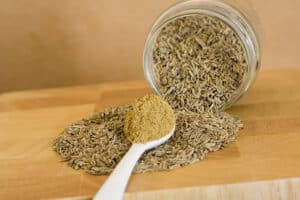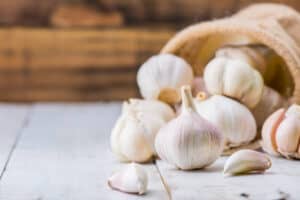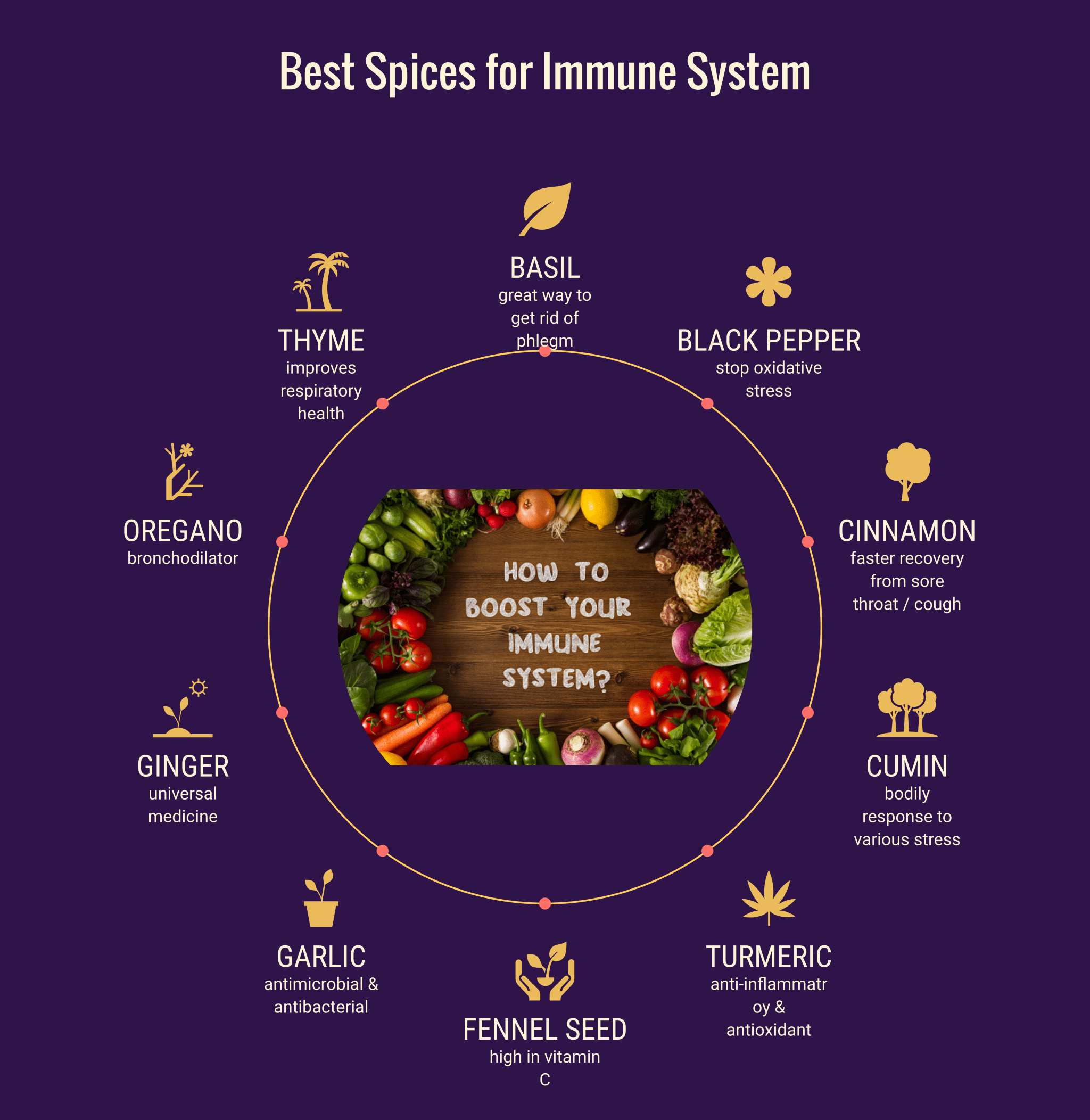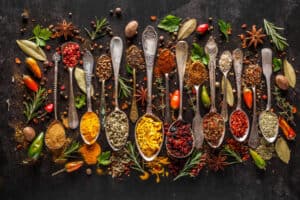Don’t give up if you haven’t yet discovered how to strengthen your immune system. Methods include adopting a healthier lifestyle and supplementing with antibacterial. Antiviral herbs are also effective as well. Having an immune system to fight off illness and harm is a blessing especially if you combine it with the best spices for immune system.
There are a wide variety of microorganisms that can enter the body through the skin. The gastrointestinal tract and the respiratory system may be an entry points too. The health of our immune systems determines whether or not exposure to such pathogens causes illness. Moreover, the immune system is invisible to us when it’s doing its job. If its functionality fails, it could cause havoc on our health.
Immune System Definition

When you’re exposed to harmful elements in the environment, your immune system kicks into gear to eliminate them. You can tell when something foreign, like the flu virus, has invaded your body because of the elaborate network of cells, tissues, and organs.
Your white blood cells, which are part of your immune system, will then respond in a coordinated, automatic fashion to help you recover. A healthy immune system helps your body resist infections and diseases. Illness is more likely to take hold when the immune system is compromised.
Diseases like cancer require a strong immune system to be defeated. Immunotherapy employs the body’s immune system to fight cancer. Given its significance to your well-being, it is imperative that we do all we can to maintain a healthy immune system.
Immune System Diseases
Before learning how to enhance your immune system, either through the use of supplements or the best spices for immune system, know that most immunological illnesses come from an overactive immune reaction or autoimmune attack. Many different conditions can cause immune system dysfunction, such as:
Hypersensitivity and Asthma
Allergic reactions are an inflammatory immunological response to allergens, which are otherwise benign environmental chemicals. This can bring on asthma, hay fever, eczema, or food allergies, among other allergic illnesses.
Infections that weaken the immune system
When one or more parts of the immune system are missing, fight off illnesses will be highly challenging for the human body. Having a compromised immune system is a symptom of HIV/AIDS or drug use. When the immune system is weak, patients are more likely to get serious or even fatal infections because they don’t have enough defenses.
Disorders of Chronic Inflammation and Autoimmunity
In the case of autoimmune diseases, the immune system mistakenly attacks healthy tissue and cell types. Rheumatoid arthritis, lupus, IBD, MS, and type 1 diabetes are autoimmune illnesses.
What are Superfoods?
In recent years, the phrase “superfood” has been used to describe everything from the common blueberry to the far-flung goji berry. However, “superfood” is a made-up term with no basis in reality. “Nutrient-dense” is a marketing term for meals that have a lot of vitamins and minerals that the body needs to work well.
It describes both the food and its possible health benefits. Consuming these types of meals can have a positive effect on your health and allow your body to perform at its peak. Keep in mind, however, that they cannot treat or prevent illness.
List of the Best Spices for Immune System
These herbs and spices can help strengthen your immune system, and you probably already have them on hand. You use these herbs and spices in your cooking all the time, but their uses extend well beyond that. There will be less of a distinction between your spice rack and your medicine chest after you learn about the immune-boosting properties of some spices.
1️⃣ Basil

Basil is used in pesto, a lot of pasta dishes, and a lot of tomato sauces, but you might not have thought about how it can help your immune system. Since having too much phlegm can make you more likely to get sick, it’s good that basil is a great way to get rid of it.
Basil has also been shown to kill viruses, which makes it a useful weapon against the common cold, the flu, and other respiratory illnesses. Basil helps the immune system work better by telling the body to make more natural killer cells. These cells look for and kill infected cells.
Ways to Use Basil:
- Season your pasta and omelets with some basil, either fresh or dried.
- Concoct some pesto!
- Add some fresh basil leaves to your sandwich fixings and spring roll fillings.
- A vinaigrette with herbs or strawberry basil is both good options.
- Pizza is always an option.
2️⃣ Black Pepper
When it comes to the herbs and spices that help strengthen the immune system, black pepper may be the most understated. Black pepper is the unripe, dried, and pickled fruit of the Piper nigrum vine. It is a strong plant medicine.
The strong, biting flavor of black pepper comes from the bioactive compound piperine, which is also what gives it its many health benefits. Piperine is a powerful antioxidant that helps stop oxidative stress from causing inflammation and making you age faster.
Black pepper may lower your chances of getting cancer, heart disease, and joint diseases that get worse over time. It calms digestion thanks to its antibacterial and circulation-boosting properties. And because of how it affects the body as a whole, it helps our immune system do its job of keeping us healthy.
Ways to Use Black Pepper:
- Black pepper, in case you didn’t know, is great with just about anything.
- You’ll get much more out of the health advantages of black pepper if you grind it yourself, and you should do so regularly. Whole peppercorns can be grated over avocado toast, baked potatoes, salads, and soups.
- Adding black pepper to vanilla ice cream, strawberries, or oats can be fun.
- Black pepper balances sweetness with a nice bite.
3️⃣ Cinnamon
Apple pies just wouldn’t be the same without this important fall spice, which also happens to be a formidable immune system booster. Cinnamon’s healing properties include those against bacteria, fungi, inflammation, and viruses. Incorporating each of them into one’s life helps maintain a healthy equilibrium.
Cinnamon might aid in the recovery from a sore throat or cough. Cinnamon-ginger tea is an old remedy that can be used to both prevent and treat cold symptoms like hacking coughs. It also helps with trouble breathing by loosening the mucus that causes it.
Ways to Use Cinnamon:
- Spread cinnamon on toast, oats, or pancakes.
- To spice up your chocolate chip cookie recipe, try adding some cinnamon.
- Add a pinch of cinnamon to the baking tray with your roasted carrots, potatoes, and parsnips.
- Blend some cinnamon into your smoothie, cocoa, or coffee.
4️⃣ Cumin

In the Middle Ages, this fragrant spice was often used to show love and loyalty. Traditional dishes from places as diverse as Mexico, Italy, the Middle East, and Africa all feature cumin as a key ingredient.
Cumin has been shown to have immunomodulatory effects, which means it can help the body respond normally to a variety of stresses in addition to its antioxidant properties. This practice has been shown to improve the immune response to allergens, autoimmune diseases, and even some cancers.
Ways to Use Cumin:
- Beans and rice, as well as curries, stews, and chili, all benefit from the addition of cumin.
- Before you bake or cook handmade flatbreads or pita, sprinkle them with cumin.
- Crunchy shell for fish and fowl made from ground cumin, cilantro, and fennel seeds.
- While the lettuce, garlic, and onions are cooking, you may pan-toast some whole coriander seeds until they’re aromatic.
5️⃣ Turmeric
In recent years, a lot of people have become interested in the root of this tropical plant, which is in the ginger family. Turmeric seems to pop up out of nowhere, and with good cause! Curcumin is a bioactive molecule that can be found in turmeric roots. Turmeric root is the bright yellow spice that gives curry its unique color.
Curcumin’s anti-inflammatory and antioxidant powers are extraordinary. When our inflammation levels are high, our immune systems are weakened, making us more likely to get sick. Many preventable diseases have been linked to chronic inflammation. Diseases involving the cardiovascular, metabolic, and nervous systems, such as Alzheimer’s, are all in this category.
Ways to Use Turmeric:
- Cook up your own curry seasoning!
- Breakfast toast with eggs and ground turmeric.
- Include it in your stews, soups, and chilis.
- Fresh turmeric root is great in smoothies or golden milk.
- For optimal absorption, take curcumin with black pepper. It’s not hard to do since we frequently use black pepper as a regular seasoning.
6️⃣ Fennel Seed
The fact that fennel has so many powerful antioxidants is a big part of why it is good for your health and is also one of the best spices for immune system. Also, it is great for the health of your digestive system and is a powerful anti-inflammatory, antibacterial, and antispasmodic.
Fennel has been shown to help clear stuffy noses and chests. This may be because the plant is high in vitamin C and has other bioactive chemicals that work together to boost the immune system. Benefits for your hair and skin from fennel seed are just an added bonus.
Ways to Use Fennel Seed:
- Sweet fennel seed tea helps aid digestion and nutrient absorption.
- Mix a tablespoon into your next batch of bread.
- After dinner, try making some candied fennel seeds for a tasty digestive snack.
- Fennel seed adds depth to tomato sauces, meat rubs, and even desserts.
7️⃣ Garlic

Do you include yourself among those who wonder why two garlic cloves are used when ten would do just as well? If that’s the case, then great. Garlic’s health benefits are as substantial as its delicious flavor. Allicin, a sulfur molecule with bioactive properties, is found in garlic, a plant in the onion family.
Only when garlic is crushed or minced does its active ingredient, allicin, become available. This compound has anti-inflammatory, antioxidant, and infection-fighting properties. Additionally, garlic’s antimicrobial, antibacterial, and antifungal effects are well documented.
8️⃣ Ginger
According to the author Kami McBride
Ginger is the universal medicine.
This common seasoning can be used both fresh and dried. Not only can it help with cold and flu symptoms, but it can also help with coughing, seasickness, nausea, sore throat, menstrual cramps, digestive problems, and stomach pain.
Ginger’s ability to reduce inflammation and protect cells from damage comes from its nutritional value and a bioactive compound called gingerol. Together, they keep us healthy and help us fight off infections.
9️⃣ Oregano
As I understand more about oregano, I wonder what it can’t treat. A powerful immune booster that is also considered one of the best spices for immune system, oregano is a Mediterranean herb with antiviral, antibacterial, and antifungal effects. It’s good at preventing the ill effects of dangerous compounds on our bodies.
Oregano’s pungent, herbaceous, and spicy scent comes from its essential oils. The antiseptic and expectorant thymol is present, as is the anti-inflammatory and bronchodilator rosmarinic acid, which is also found in rosemary. It’s also a good source of iron, calcium, and vitamins A and C. Oregano has traditionally been used to treat bronchitis, abundant phlegm, and spasmodic coughs.
🔟 Thyme
Even though thyme leaves are so little, they pack a powerful punch. Thyme, on the other hand, is probably my favorite of all herbs and one of the best spices for immune system. When it comes to herbal medicines, thyme is among the very best for improving respiratory health.

How to Use These Herbs & Spices Everyday
It has strong antibacterial, antifungal, antiviral, antiseptic, antioxidant, and anti-inflammatory properties and boosts the immune system in a number of ways. It helps people fight off infections because it has a lot of vitamins and minerals. It also contains magnesium, potassium, vitamin C, and vitamins A and C. Thyme, like many other herbs, works best when applied early in the course of an illness. Add additional thyme to your food if your throat tickles.
✔ Keep Them In Your Sights
Sprinkle salt, pepper, and a variety of seasonings across the table. So next time you go to sprinkle some salt on your food, you’ll be reminded of the many health benefits you’d reap from utilizing herbs and spices instead.
✔ Make your Own Herb and Spice Blends
If you keep track of the spices you use, you might find that you only use a handful of them. Put your culinary imagination to work right now. To boost your resistance, try concocting your own herbal and spice blends.
You may enjoy a salt blend that includes turmeric and cumin if you find yourself reaching for these spices frequently. Add 1 tablespoon salt, 1 teaspoon turmeric, and 1/4 teaspoon cumin. Combine the ingredients in a salt shaker and use as desired.
✔ Freeze or Dry Fresh Herbs
How often do you buy fresh herbs just to have them go bad in the fridge because you haven’t used them all? Freeze fresh herbs in ice cube containers so you can use them later. You may also use a knot to join the parts and then hang them in the shade somewhere with good airflow. (Add in some country, farmhouse-style accents to the kitchen for good measure.)
✔ Substitute Dried Herbs for Fresh Recipes
Dried basil is the way to go when you need just a pinch of an herb or spice but don’t have time to go out and buy it fresh or don’t want to spend the extra money. Any recipe calling for fresh herbs can instead use dried herbs. While fresh herbs are ideal, you may always use dried ones as a substitute.

✔ Natural Immune System Boosters You Can Grow Yourself!
I believe that both children and adults are more likely to consume foods that they had a hand in cultivating. Growing your own food provides a tangible sense of satisfaction. I’d like to think that this is our subconscious remembering that for a long time, people had to take care of their own food and medicine needs. All life on Earth did well because of that way of living, which led to a relationship of plenty and mutual benefit with the planet.
Frequently Asked Questions
Q: Which spices can be used to treat an infection?
For millennia, people have turned to turmeric as a remedy for everything from cuts and scrapes to the common cold and even liver cancer. Curcumin, a component of turmeric, has shown promise in studies for lowering inflammation.
Q: What triggers this immunological response?
The immune system can also be temporarily weakened by viruses and bacteria, like when you have a cold, the flu, or measles. Several things, like smoking, drinking too much, and not eating well, can weaken the immune system.
Q: Why does one have a low resistance?
Smoking, drinking, and poor nutrition can all lower your immune system’s performance. HIV virus is the causative factor of AIDS. Normally treatable illnesses can have devastating consequences for people living with HIV/AIDS.
Final Thoughts
As part of the human body, the immune system aims to protect itself from foreign organisms like bacteria and viruses. It’s made up of interconnected systems of organs, enzymes, and proteins. Without a fully functional immune system, you would have any symptoms.
The disease is more likely to manifest when the immune system is compromised. The antibacterial and immune-boosting qualities of plants, herbs, minerals, and meals. With that, way-of-life modifications make them useful for preventing and treating illnesses.
